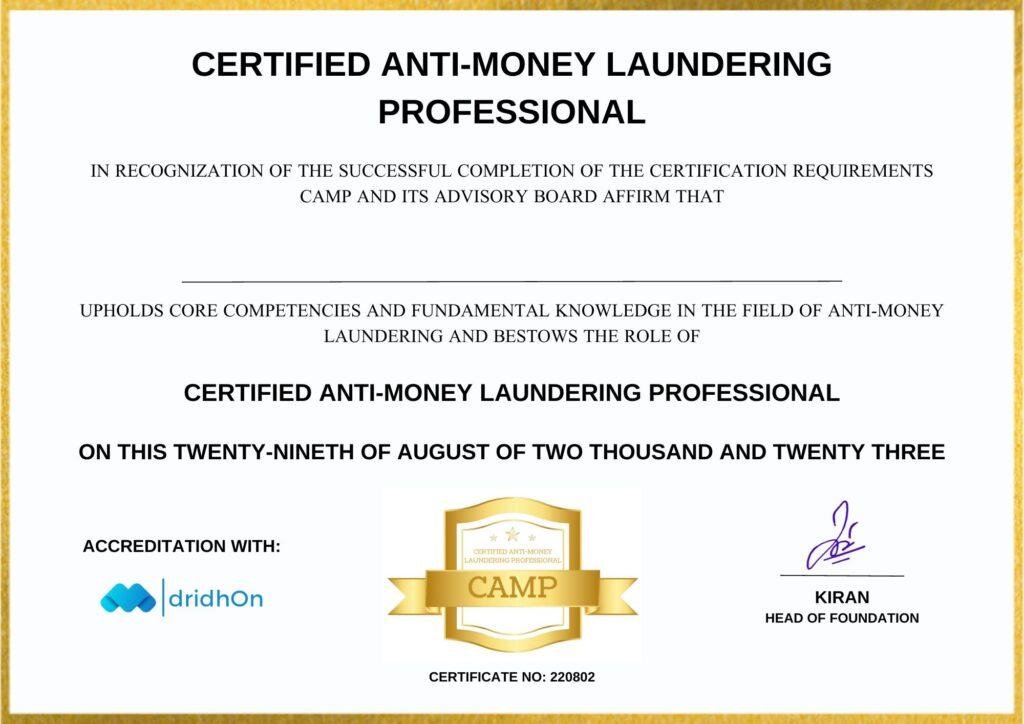Data Science Interview Questions Data Science Interview Questions 1. What...
Read MoreAML Interview Question and Answers
1.What is Money Laundering, and why is it a concern?
Money laundering is the process of making illegally obtained money, often from criminal activities, appear legitimate by passing it through a complex sequence of banking transfers or commercial transactions. It is a concern because it helps criminals conceal the origins of their illicit funds, making it difficult for authorities to trace and investigate the source of illegal activities.
2: What is the purpose of AML regulations and compliance?
AML regulations and compliance measures are put in place to detect, prevent, and combat money laundering and terrorist financing activities. They aim to protect the integrity of the financial system, maintain transparency, and safeguard institutions and their customers from potential risks associated with money laundering.
3: Can you explain the "Know Your Customer" (KYC) process?
KYC is a critical component of AML compliance. It involves verifying the identity of customers and assessing the risks they pose. The process includes collecting essential information, such as customer identification documents, verifying the information against reliable sources, and conducting ongoing monitoring to detect any suspicious or unusual activities.
4: What are some red flags of suspicious activity that could indicate potential money laundering?
Red flags of suspicious activity may include:
Frequent large cash deposits or withdrawals without a clear business reason.
Rapid movement of funds through multiple accounts or jurisdictions.
Transactions involving high-risk countries or individuals on sanctions lists.
Structuring transactions to avoid reporting thresholds.
Unexplained international wire transfers with no apparent business purpose.
Engaging in transactions inconsistent with the customer's known financial activity.
5: How do you report suspicious activities?
If you suspect a transaction or activity may be related to money laundering or terrorist financing, you should follow the established reporting procedures of your institution. Generally, you should notify your internal AML compliance officer, who will then file a suspicious activity report (SAR) with the appropriate regulatory authorities.
6: What is the role of the Financial Action Task Force (FATF) in AML efforts?
The Financial Action Task Force is an intergovernmental organization that sets international standards and promotes the implementation of legal, regulatory, and operational measures to combat money laundering, terrorist financing, and other related threats to the integrity of the international financial system. It establishes recommendations and monitors countries' progress in adhering to these standards.
7: How do you stay updated with the latest AML regulations and trends?
To stay updated, I regularly review regulatory updates issued by relevant authorities such as FATF, the Financial Crimes Enforcement Network (FinCEN), and other AML watchdogs. I also attend industry conferences, workshops, and webinars that focus on AML best practices and emerging trends. Additionally, I participate in internal training programs provided by my organization to ensure continuous education on AML matters.
Remember that AML regulations can vary depending on the country and the specific financial institution, so it's essential to be familiar with the specific guidelines and policies applicable to the organization you are interviewing with. Good luck with your AML interview!
Top 30 DevOps Interview Questions & Answers (2022 Update)
Top 30 DevOps Interview Questions & Answers (2022 Update) Top...
Read MoreAnti Money Laundering Interview Questions
Anti Money Laundering Interview Questions Anti Money Laundering Interview Questions...
Read More






